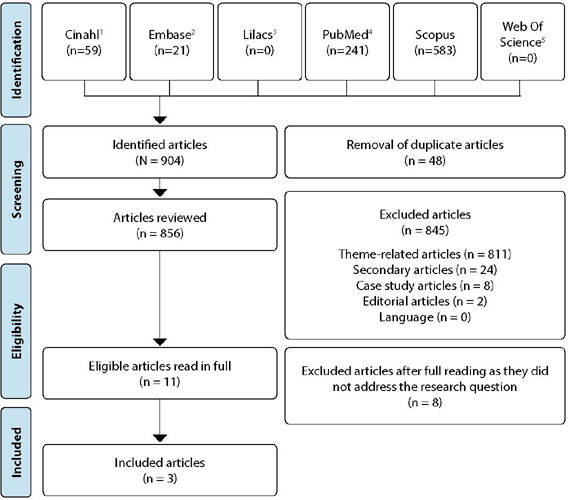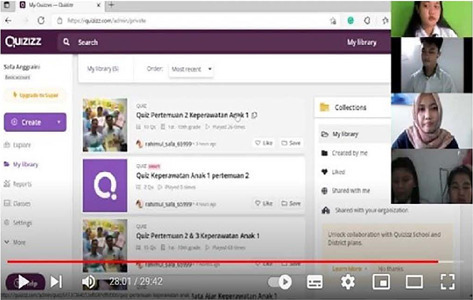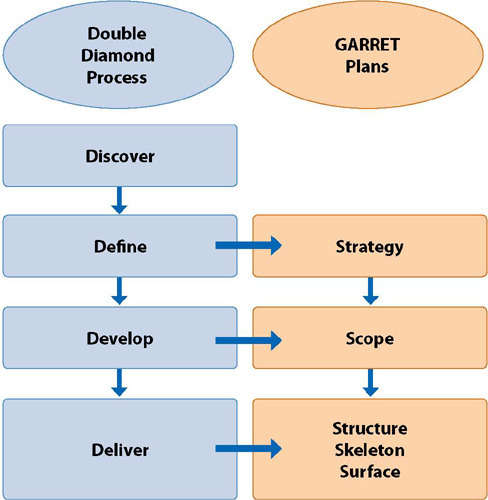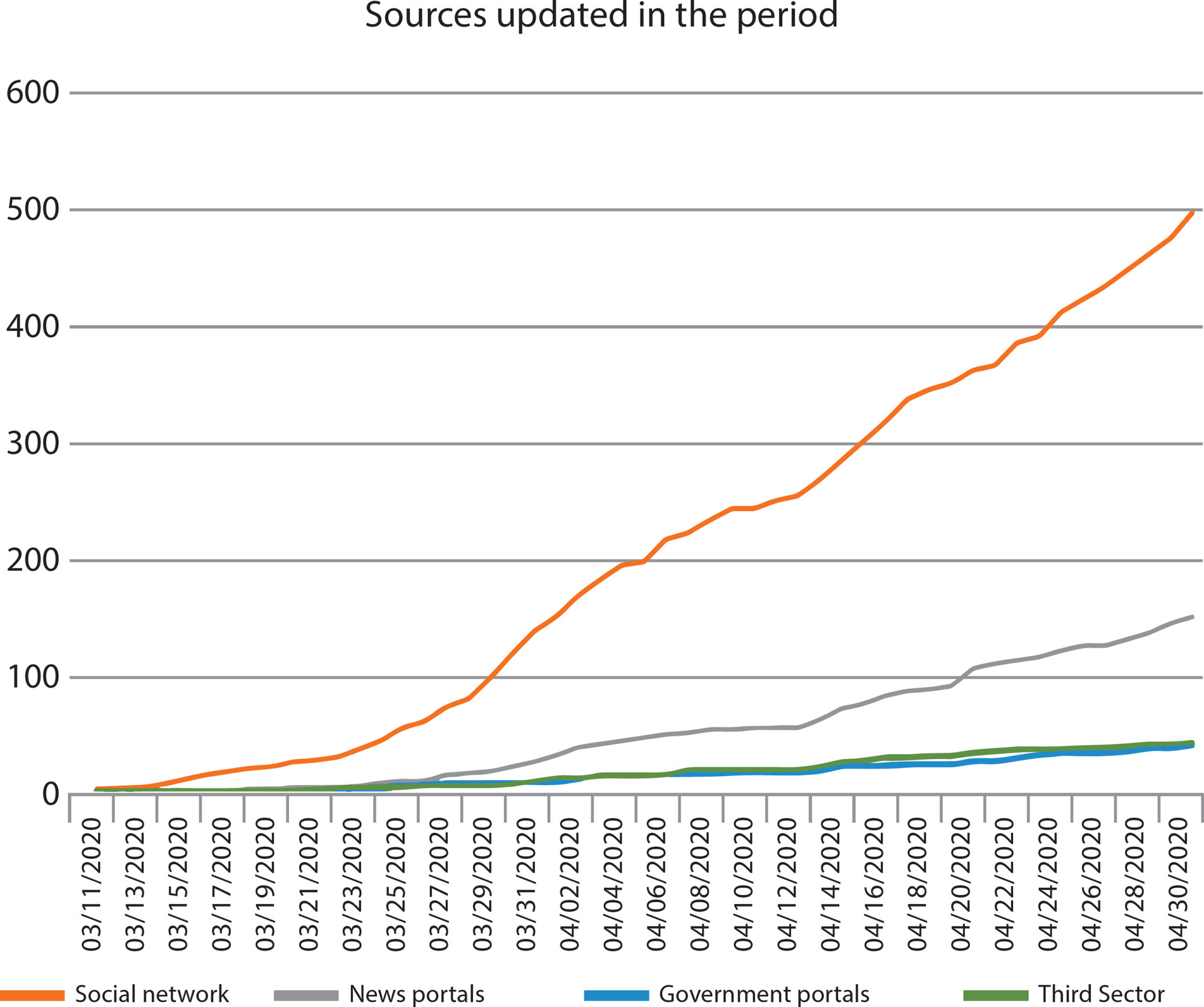-
11-10-2023
Time to act sustainably: Why can’t we wait any longer?
Revista Brasileira de Enfermagem. 2023;76(5):e20220813
Abstract
Time to act sustainably: Why can’t we wait any longer?
Revista Brasileira de Enfermagem. 2023;76(5):e20220813
DOI 10.1590/0034-7167-2022-0813
Views0See moreABSTRACT
Objectives:
to raise reflections on the need for health services and professionals to implement sustainable actions, aiming at their own survival and that of the planet.
Methods:
reflective essay based on international reports regarding the impact of climate change on people’s health and the role of institutions in this context.
Results:
the article focused on three fundamentals: climate change continues to be a threat to the health and well-being of all beings on Earth; the institutions that should contribute to health are great agents of contamination of the environment and emission of gases that aggravate the greenhouse effect; and there are several benefits for health institutions to act sustainably.
Final Considerations:
we cannot wait any longer; we must develop policies and management models aimed at environmentally responsible, economically viable, and socially more collaborative healthcare.
-
REVIEW11-10-2023
Applying Lean Healthcare in the hospitalization and patient discharge process: an integrative review
Revista Brasileira de Enfermagem. 2023;76(5):e20220751
Abstract
REVIEWApplying Lean Healthcare in the hospitalization and patient discharge process: an integrative review
Revista Brasileira de Enfermagem. 2023;76(5):e20220751
DOI 10.1590/0034-7167-2022-0751
Views0See moreABSTRACT
Objectives:
to identify scientific evidence regarding the use of Lean Healthcare approach in the hospitalization and patient discharge process.
Methods:
this is an Integrative Review conducted in the PubMed, LILACS, SCOPUS, CINAHL, Web of Science, and Embase databases.
Results:
out of 904 records identified, three were included in this review. The studies demonstrated that when applied to discharge planning, the Lean philosophy brings favorable results, promoting improvements in the communication process, as well as assisting in workflow organization, with a reduction in length of stay and improvement in the quality of care.
Final Considerations:
although the Lean methodology presents positive results, it is considered that the application of the philosophy in healthcare institutions is still not sustainable, as it is often restricted to specific departments or services. Thus, to maximize the success of implementation, the Lean philosophy needs to be incorporated into the organizational culture, representing the greatest challenge.

-
11-10-2023
A eficácia do uso de livros interativos multimodalidade em enfermagem pediátrica na implementação do programa Merdeka Belajar
Revista Brasileira de Enfermagem. 2023;76(5):e20220599
Abstract
A eficácia do uso de livros interativos multimodalidade em enfermagem pediátrica na implementação do programa Merdeka Belajar
Revista Brasileira de Enfermagem. 2023;76(5):e20220599
DOI 10.1590/0034-7167-2022-0599
Views0See moreRESUMEN
Objetivos:
analizar la efectividad del uso de libros interactivos multimodales en enfermería pediátrica sobre los resultados de aprendizaje de los estudiantes en la implementación del Programa Merdeka Belajar.
Métodos:
investigación cuasi-experimental con un diseño de grupo de control posterior a la prueba. En este estudio, la muestra incluyó 52 estudiantes de enfermería del cuarto semestre del Instituto de Ciencias de la Salud Suaka Insan Banjarmasin que recibieron el curso de Enfermería Pediátrica. Fue utilizada la técnica de muestreo total y la prueba t dependiente en el análisis de datos.
Resultados:
el libro interactivo multimodal de enfermería pediátrica fue efectivo en la mejora del logro de aprendizaje de los estudiantes de cuarto semestre con un valor de significancia de 0,015 < 0,05. Hay una diferencia en el valor promedio de los cursos de enfermería pediátrica para la clase A y la clase B, que es de 3,173.
Conclusiones:
el uso de libros multimodales interactivos es muy bueno para que los profesores los apliquen en la enseñanza para ayudar a los estudiantes a comprender el material que están aprendiendo.
-
11-10-2023
ERRATA
Revista Brasileira de Enfermagem. 2023;76(5):e2023n5e04
Abstract
ERRATA
Revista Brasileira de Enfermagem. 2023;76(5):e2023n5e04
DOI 10.1590/0034-7167.20237605e04pt
Views0No artigo “Primeira graduada do Mestrado em Enfermagem em Prática Avançada em Oncologia no Chile”, com número DOI: , publicado no periódico Revista Brasileira de Enfermagem, 2023; 2023(Suppl 4):e76suppl401, no segundo parágrafo:Onde se lia:[…]See more -
ORIGINAL ARTICLE11-10-2023
The effectiveness of using interactive multimodality books in pediatric nursing in implementing Merdeka Belajar program
Revista Brasileira de Enfermagem. 2023;76(5):e20220599
Abstract
ORIGINAL ARTICLEThe effectiveness of using interactive multimodality books in pediatric nursing in implementing Merdeka Belajar program
Revista Brasileira de Enfermagem. 2023;76(5):e20220599
DOI 10.1590/0034-7167-2022-0599
Views0See moreABSTRACT
Objectives:
to analyzing the Effectiveness of Using Interactive Multimodality Books in Pediatric Nursing on Student Learning Outcomes in Implementing the Merdeka Belajar Program.
Methods:
the research design used a quasi-experimental approach with a posttest control group design. The sample in this study was the fourth-semester nursing students of Institute of Health Science Suaka Insan Banjarmasin who received the Pediatric Nursing course, a total of 52 students. The sampling technique used is total sampling. Data analysis used the dependent t-test.
Results:
the interactive multimodality pediatric nursing book was effective in improving the learning achievement of fourth-semester students with a significance value of 0.015 < 0.05. There is a difference in the average value of pediatric nursing courses for class A and class B, which is 3.173.
Conclusions:
the use of interactive multimodality books is very good for lecturers to apply in teaching to help students understand the material they are learning.

-
ERRATUM11-10-2023
ERRATUM
Revista Brasileira de Enfermagem. 2023;76(4):e2023n4e03
Abstract
ERRATUMERRATUM
Revista Brasileira de Enfermagem. 2023;76(4):e2023n4e03
DOI 10.1590/0034-7167.20237604e03
Views0In the article “Diabetic foot ulcer self-care assessment: a scoping review”, with DOI number: https://doi.org/10.1590/0034-7167-2022-0555, published in Revista Brasileira de Enfermagem, 2023;76(3): e20220555, in the title:Where it read:[…]See more -
ORIGINAL ARTICLE11-10-2023
Validation of the Advanced Practice Nursing Competency Assessment Instrument in a hospital environment
Revista Brasileira de Enfermagem. 2023;76:e20220705
Abstract
ORIGINAL ARTICLEValidation of the Advanced Practice Nursing Competency Assessment Instrument in a hospital environment
Revista Brasileira de Enfermagem. 2023;76:e20220705
DOI 10.1590/0034-7167-2022-0705
Views0See moreABSTRACT
Objectives:
to evaluate the measurement properties of the Advanced Practice Nursing Competency Assessment Instrument – Brazilian version, in the hospital environment.
Methods:
a methodological study conducted in a hospital with 238 nurses. Three instruments collect the data: sample characterization form, Brazilian version of the Advanced Practice Nursing Competency Assessment Instrument, and the category “therapeutic interventions” of the nurse competence scale. Construct validity was verified by confirmatory factor analysis and Spearman’s correlation coefficient, and reliability by Cronbach’s Alpha and composite reliability.
Results:
in the factor analysis, the model converged to a satisfactory result. The study found acceptable evidence of reliability (Cronbach’s Alpha, 0.76-0.87; and composite reliability, 0.85-0.90).
Conclusions:
the instrument demonstrated evidence of construct validity and internal consistency and can be used in practice
-
11-10-2023
Technology for the treatment promotion of adults living with HIV: Positive o Cuidado (Positive the Care)
Revista Brasileira de Enfermagem. 2023;76:e20220454
Abstract
Technology for the treatment promotion of adults living with HIV: Positive o Cuidado (Positive the Care)
Revista Brasileira de Enfermagem. 2023;76:e20220454
DOI 10.1590/0034-7167-2022-0454
Views0See moreABSTRACT
Objectives:
to develop a responsive website focused on treatment adherence for adult users living with HIV.
Methods:
technological study conducted between August and October 2020, in the light of Pierre Lévy’s theoretical-philosophical framework, using the Double Diamond Process methodology associated with the five stages of The Elements of User Experience framework.
Results:
it was developed the responsive website Positive Care (Positive o Cuidado), composed of an initial presentation screen and 13 other screens named: Family Health and You; Undetectable = Untransmissible; Antiretroviral Drugs; Routine Tests; Vaccination; Antiretroviral Delivery; Drug Interactions; Combined Prevention; Support Services; Healthy Life; Family and Reproductive Planning; Covid 19; and Questions, Curiosities, and Myths.
Final Considerations:
the responsive website was developed based on the software design and programming process and has requirements/functionalities with the potential to strengthen the collective intelligence about HIV and, consequently, to promote treatment adherence by its users.

-
ORIGINAL ARTICLE10-21-2019
Religious/spiritual coping and spiritual distress in people with cancer
Revista Brasileira de Enfermagem. 2019;72(6):1534-1540
Abstract
ORIGINAL ARTICLEReligious/spiritual coping and spiritual distress in people with cancer
Revista Brasileira de Enfermagem. 2019;72(6):1534-1540
DOI 10.1590/0034-7167-2018-0585
Views0See moreABSTRACT
Objective:
To investigate the relation between the presence of spiritual distress and use of RSC and sociodemographic, clinical and religious/spiritual variables in people with cancer.
Method:
Cross-sectional study conducted in an association for support to people with cancer. The data obtained with the tools were analyzed using the Spearman‘s correlation coefficient and the Mann-Whitney Test.
Results:
129 volunteers participated in the study, of which 57% showed moderate spiritual distress, 96% used medium and high positive religious/spiritual coping. Spiritual distress showed positive correlation with negative religious/spiritual coping (P<0.001) and inverse correlation with age (p 0.002). The use of positive religious coping was statistically significant in people who have religious practices (p 0.001).
Conclusão:
Spiritual distress is a phenomenon that is present in the lives of people with cancer and has significant relation with the use, in a negative manner, of religion/spirituality as a way of coping with the disease.
-
ORIGINAL ARTICLE09-16-2019
Social incentives for adherence to tuberculosis treatment
Revista Brasileira de Enfermagem. 2019;72(5):1182-1188
Abstract
ORIGINAL ARTICLESocial incentives for adherence to tuberculosis treatment
Revista Brasileira de Enfermagem. 2019;72(5):1182-1188
DOI 10.1590/0034-7167-2017-0654
Views0See moreABSTRACT
Objective:
To analyze the influence of social incentives for adherence to tuberculosis (TB) treatment.
Method:
Qualitative study, in which 26 primary health care professionals of São Paulo were interviewed in 2015.Their testimonies were submitted to the speech analysis technique. The theoretical reference was the social determination of the health-disease process. Ethical procedures were observed.
Results:
TB is related to precarious living conditions. Incentives such as the basic food basket and transportation stipends are relevant for patients’ adherence to treatment, as well as to the create bonds between the patient and the health team.
Final considerations:
The incentives strengthened adherence to TB treatment. However, interventions in the context of public measures must transcend the remedial dimension and be guided towards the transformation of the TB situation, which means supporting processes that modify living conditions.
-
ORIGINAL ARTICLE07-01-2020
Homeless population: characterization and contextualization by census research
Revista Brasileira de Enfermagem. 2020;73(5):e20190236
Abstract
ORIGINAL ARTICLEHomeless population: characterization and contextualization by census research
Revista Brasileira de Enfermagem. 2020;73(5):e20190236
DOI 10.1590/0034-7167-2019-0236
Views0See moreABSTRACT
Objectives:
to analyze characteristics of homeless people and factors associated with living on the streets.
Methods:
a census-type sectional survey carried out between 2015 and 2018, in the municipality of Maringá-Paraná. A total of 701 homeless answered a structured questionnaire with sociodemographic data, living conditions, and drug use. We used Pearson’s correlation test for the association analysis of the variables at a 95% confidence level.
Results:
men (90.7%) the average age of 37.7 years had been homeless for an average of 5.39 years. Most had little education (54.2%), and homelessness was due to drug use (47.2%) and family disagreements (38.9%).
Conclusions:
drug use and family disagreements were the main reasons for homelessness. Time on the street, gender, and drugs were associated with a negative correlation to be homeless; and age, mean daily income, the number of daily meals, having been in prison, and having an income source were associated with positive correlation.
-
REFLECTION05-03-2021
Florence Nightingale’s theory and her contributions to holistic critical thinking in nursing
Revista Brasileira de Enfermagem. 2021;74(2):e20200139
Abstract
REFLECTIONFlorence Nightingale’s theory and her contributions to holistic critical thinking in nursing
Revista Brasileira de Enfermagem. 2021;74(2):e20200139
DOI 10.1590/0034-7167-2020-0139
Views0See moreABSTRACT
Objective:
to reflect on Florence Nightingale’s legacy and describe her contributions to critical holistic thinking in nursing.
Methods:
this is a theoretical reflection, for which scientific productions on Florence Nightingale’s environmental theory, as published in national and international journals, were based.
Results:
Florence Nightingale’s philosophy and teachings emphasize that the nurse must use her brain, heart and hands to create healing environments to care for the patient’s body, mind and spirit. Nursing, since the time of Nightingale, has been building the holistic paradigm, in all schools of thought, with a view to a humanistic approach to the human being in their indivisible relationship with the environment.
Final considerations:
Florence’s contributions to holistic critical thinking in nursing are evident, constituting nurses’ differential in clinical practice.
-
REVIEW06-26-2023
Barriers to Pre-Exposure Prophylaxis (PrEP) use for HIV: an integrative review
Revista Brasileira de Enfermagem. 2023;76(3):e20210963
Abstract
REVIEWBarriers to Pre-Exposure Prophylaxis (PrEP) use for HIV: an integrative review
Revista Brasileira de Enfermagem. 2023;76(3):e20210963
DOI 10.1590/0034-7167-2021-0963
Views0See moreABSTRACT
Objectives:
to identify and synthesize scientific evidence on the barriers and difficulties for Pre-exposure Prophylaxis (PrEP) use and compliance for HIV.
Methods:
an integrative literature review, using the MEDLINE/PubMed, Cumulative Index to Nursing and Allied Health Literature (CINAHL), Academic Search Premier and Scopus (Elsevier) databases.
Results:
all (100%) the articles included identified that PrEP users experience some type of structural barrier related to health services such as long distance from the units, suboptimal logistics for taking pills and professional resistance to prescribing PrEP. Furthermore, 63.21% identified social barriers, such as stigma about sexuality and HIV, in addition to individual barriers such as alcohol use, adverse effects, and concerns about long-term toxicity.
Conclusions:
the barriers to PrEP use are multifactorial. Effective interventions are needed to support PrEP users in accessing, complying with, and retaining health services.

-
11-13-2020
Fear of childbirth in time of the new coronavirus pandemic
Revista Brasileira de Enfermagem. 2020;73:e20200551
Abstract
Fear of childbirth in time of the new coronavirus pandemic
Revista Brasileira de Enfermagem. 2020;73:e20200551
DOI 10.1590/0034-7167-2020-0551
Views0See moreABSTRACT
Objective:
Reflect on how the new coronavirus pandemic triggered or accentuated the fear of childbirth in pregnant women and affected childbirth care practices.
Methods:
Reflective analysis of women’s pregnancy and childbirth experiences during the current pandemic, supported by the latest scientific evidence and recommendations on the topic.
Results:
Pregnancy and childbirth are life-changing events for women, but during the new coronavirus pandemic, fear and uncertainty have taken on an unprecedented dimension in the negative way that many pregnant women have anticipated and experienced childbirth.
Final considerations:
The current period has accentuated a chronic problem: a paternalistic system of health institutions in the approach to childbirth, dense with additional levels of fear in pregnant women. In this context, addressing the fear of childbirth means not giving up the promotion of safe and positive birth experiences for women.

-
EXPERIENCE REPORT10-26-2020
Brazilian Nursing Process Research Network contributions for assistance in the COVID-19 pandemic
Revista Brasileira de Enfermagem. 2020;73:e20200798
Abstract
EXPERIENCE REPORTBrazilian Nursing Process Research Network contributions for assistance in the COVID-19 pandemic
Revista Brasileira de Enfermagem. 2020;73:e20200798
DOI 10.1590/0034-7167-2020-0798
Views0See moreABSTRACT
Objective:
to describe the theoretical construction process of nursing process support documents in COVID-19 care scenarios.
Methods:
an experience report of the joint activity of the Brazilian Nursing Process Research Network (Rede de Pesquisa em Processo de Enfermagem) composed of Higher Education and Health Institution researchers in Brazil.
Results:
five instruments were organized collectively, involving the elements of nursing practice (nursing diagnoses, outcomes and interventions) in assistance for community; for patients (with suspected or mild, moderate, and critical COVID-19 and residents in Nursing Homes); for nursing workers’ health support, also subsidizing registration and documentation during the COVID-19 pandemic.
Final considerations:
valuing the phenomena manifested by families/communities, patients and health professionals is essential for early detection, intervention, and prevention of diseases.
-
01-29-2021
Domestic violence against women amidst the pandemic: coping strategies disseminated by digital media
Revista Brasileira de Enfermagem. 2021;74:e20200631
Abstract
Domestic violence against women amidst the pandemic: coping strategies disseminated by digital media
Revista Brasileira de Enfermagem. 2021;74:e20200631
DOI 10.1590/0034-7167-2020-0631
Views0See moreABSTRACT
Objective:
to know the strategies to cope with domestic violence against women disseminated by digital media at the beginning of the COVID-19 pandemic.
Methods:
a documentary study with a qualitative approach. The search took place from March 11 to April 30, 2020, from four sources: newspapers and online portals, social network, official government pages and third sector portals. Thematic content analysis of the findings was performed.
Results:
seventy-seven strategies were identified in the journalistic press, 93 in the social network, 45 in government portals and 40 in third sector organizations. From analysis, three empirical categories emerged: Strategies for communication with women; Strategies adopted by customer service; Strategies to inform the population.
Final considerations:
most of strategies were adaptations of existing services, centered on the reporting of violence by women

Search
Search in:
Nuvem de Tags
Adolescente (85) Atenção Primária à Saúde (239) COVID-19 (91) Criança (91) Cuidados de Enfermagem (269) Educação em Enfermagem (151) Educação em Saúde (139) Enfermagem (930) Enfermagem Pediátrica (86) Estudantes de Enfermagem (77) Estudos de Validação (131) Família (87) Idoso (208) Promoção da Saúde (99) Qualidade de Vida (104) Saúde do Trabalhador (86) Saúde Mental (145) Saúde Pública (82) Segurança do Paciente (150) Tecnologia Educacional (100)



